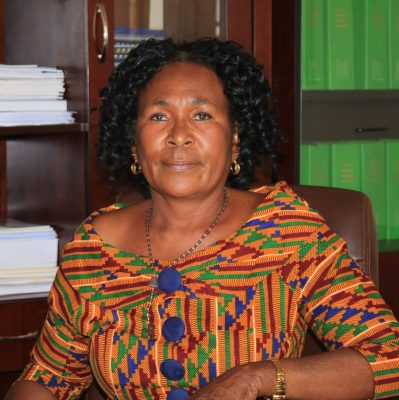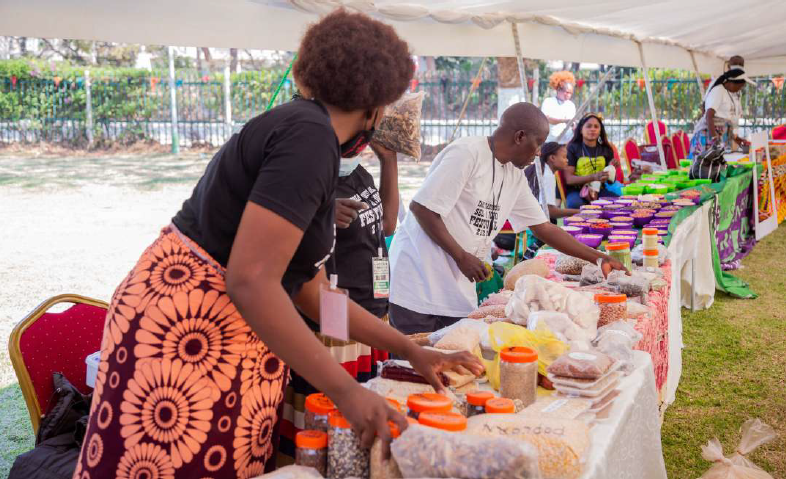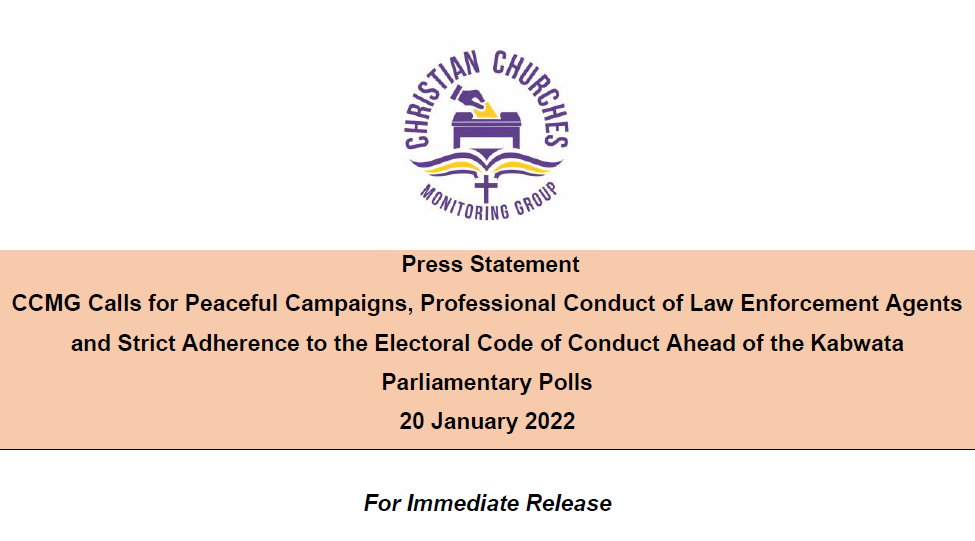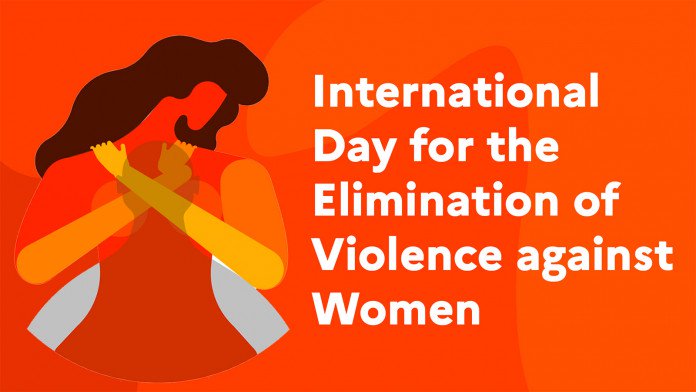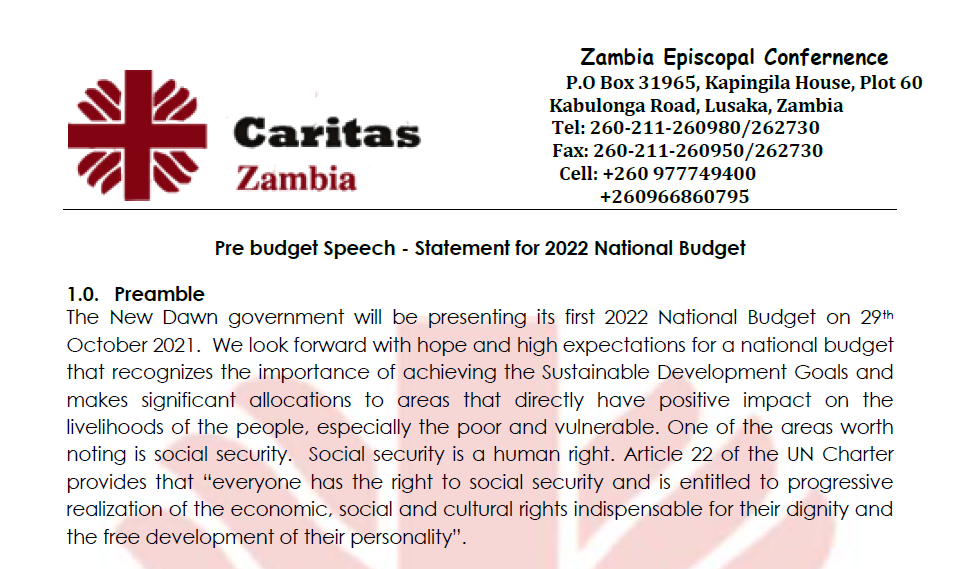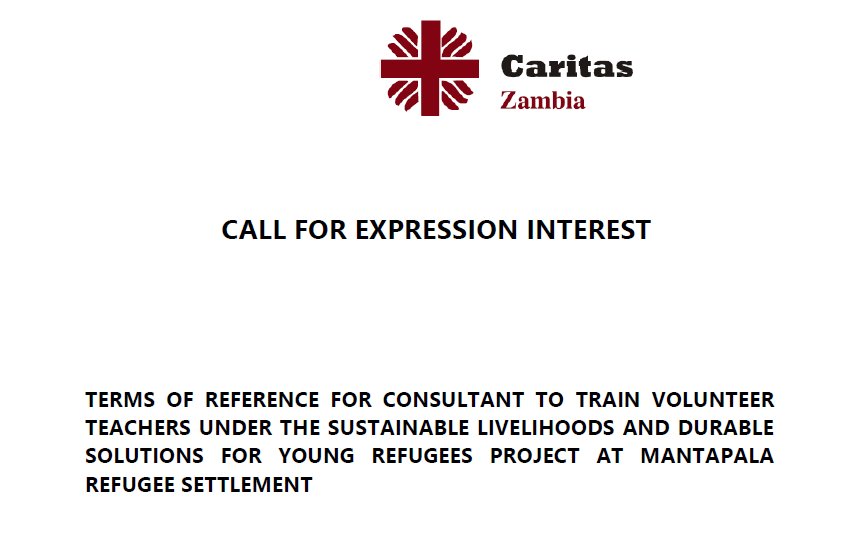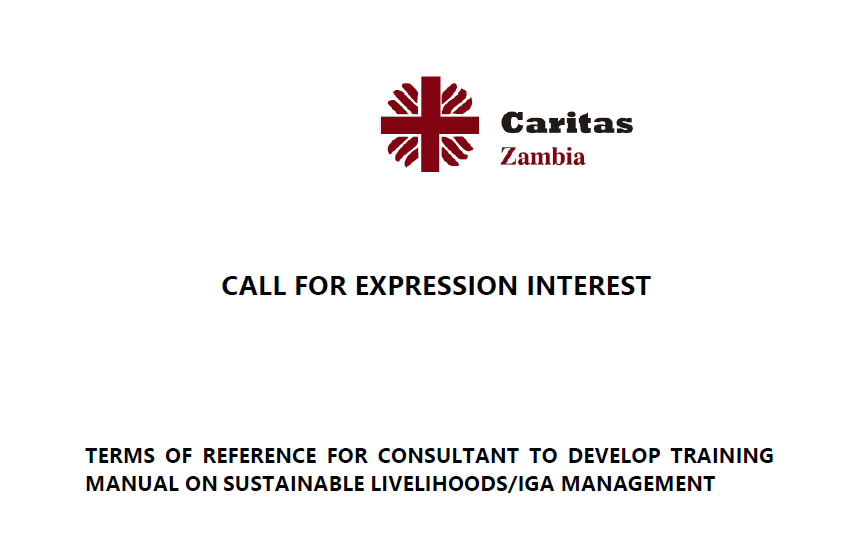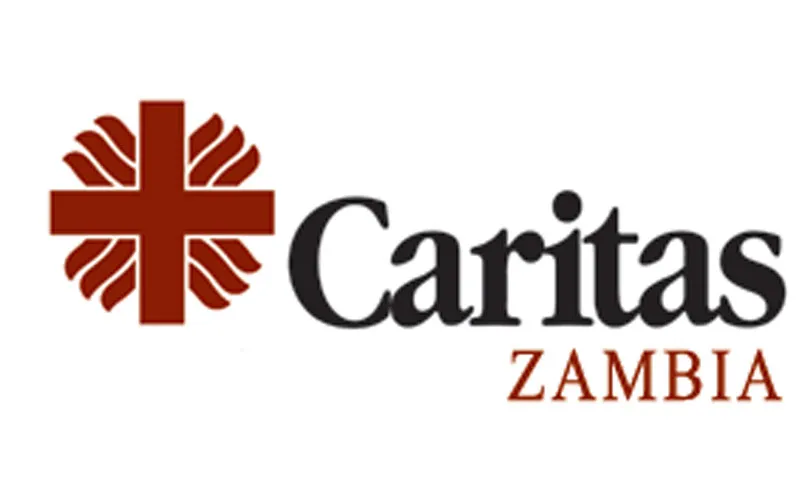Every three years, the World Water Council convenes an international forum to raise awareness on global water challenges. The 9th Water Forum will be held in Dakar, Senegal from 22 to 27 March 2022. The forum’s aim is to raise awareness among economic, political and social decision makers in order to trigger action; facilitate dialogue and experience sharing on efforts to improve access to water and sanitation supply; and to create an environment for cooperation in the implementation of integrated concrete responses to issues in water.
Download the entire 9th World Water Forum, Dakar 2022. Water Security for Peace and Development. Beyond Commitments, What Should Be Done? here https://caritaszambia.org/phocadownload/general/9th-World-Water-Forum-19-03-2022.pdf
MINISTRY OF COMMUNITY DEVELOPMENT AND SOCIAL SERVICES STATEMENT FOR IMMEDIATE RELEASE
2022 World NGO Day Celebrations – 27th February, 2022
To all Non-Governemental Organisations and stakeholders in Zambia
As you may be aware, the World Non-Governemental Organisations (NGO) Day falls on 27th February, 2022. The World NGO day is a universal concept aimed at celebrating, commemorating and appreciating the role of NGOs in the development process around the world. During this day, NGOs share their knowledge and experiences in their work and Governments use the day to restate their policy position in facilitating active participation of NGOs in their respective jurisdictions.
Caritas Africa Info is a Quarterly Newsletter of Caritas in Africa
Download the entire GOVERNMENT OF THE REPUBLIC OF ZAMBIA STATEMENT ON THE 2022 WORLD NGO DAY CELEBRATIONS here https://caritaszambia.org/phocadownload/general/GOVERNMENT-OF-THE-REPUBLIC-OF-ZAMBIA-STATEMENT-ON-THE-2022-WORLD-NGO-DAY-CELEBRATIONS.pdf
Zambia: Caritas wins a ward for best seed exhibition
The Zambian Seed and Food Festival is a concept that aims to bring back seeds that are in danger of extinction due to the hybrid seeds of multinationals that have taken centre stage. The festival also aims to encourage the preservation of seeds that can still withstand the current adverse weather conditions in order to address food and nutrition insecurity. It is a platform for small-scale farmers to share their ideas on why and how to save the local Zambian seeds that have fed generations.
Among the many stalls at the festival were farmers from Caritas Zambia's food security projects in Kumena and Zambia under the livelihoods programme. They presented a fascinating seed exhibition, which showed the importance of traditional seeds as major contributions to the food system, in terms of nutrition, economic empowerment, social and cultural heritage as well as political power in relation to traditional seeds and foods.
Farmers from all diocesan Caritas presented a diversity of seeds while highlighting the story of increased production, household income, value addition, better marketing, reduced suffering of women and improved food security of their communities. As a result, they won the award for the best presentation of seed diversity at the 4th Zambian Traditional Food and Seed Festival 2021.
On receiving the award, the farmers expressed their joy, but also their concern that the lack of diversity in seed and food production is affecting the diet of many communities, leading to hunger and malnutrition. "Therefore, our exhibition is a strong call to improve diversity in both food production and consumption by promoting local seed diversity.
Farmers from Caritas Zambia, Food Security Projects and Kumena, reiterated the call for seed sovereignty, which includes the rights of farmers to save, reproduce and exchange seeds, to have access to diverse seeds This is the case for traditional open-pollinated seeds that can be saved, replanted and are not genetically modified. "Seed sovereignty recognises the importance of farmersaved seed systems, which are essential for food security at the household level.
Caritas Zambia says that in addition to displacing and destroying diversity, commercialised seed varieties also undermine seed sovereignty and farmers' rights. That's why small-scale farmers should be encouraged to grow their own traditional seeds.
The award received by Caritas Zambia comes with a call and recommendation to invest in research and development and seed system services.
Seeds are undoubtedly the most important agricultural input, as without seeds there is no harvest. They are a fundamental pillar of agricultural and food production
and the need for integrated seed system laws rather than prohibiting the use and sale of traditional varieties and breeds cannot be overstated.
Caritas Africa Info is a Quarterly Newsletter of Caritas in Africa
Download the entire Quarterly Newsletter of Caritas in Africa for October-December 2021 here https://www.caritaszambia.org/phocadownload/quarterly_bulletins/Caritas-Africa-Info-Quarterly-Newsletter-October-December-2021.pdf
PRESS STATEMENT
CCMG Calls for Peaceful Campaigns, Professional Conduct of Law Enforcement Agents and Strict Adherence to the Electoral Code of Conduct Ahead of the Kabwata Parliamentary Polls
20 January 2022
As the Electoral Commission of Zambia (ECZ) conducted fresh nominations for the Kabwata Parliamentary By-Election which was scheduled to take place on 20 January 2022, but was cancelled and postponed to 3 February 2022 in accordance with Article 52(6) of the Constitution of the Republic of Zambia following the resignation and withdrawal of a candidate, CCMG calls on all contesting political parties and candidates to adhere to the Electoral Process Act and Electoral Code of Conduct during campaigns and on election day.
“We would like to call on all political parties, candidates and their supporters to adhere to the Electoral Code of Conduct and conduct violence free campaigns, restraining all supporters from acts of provocation of their political opponents. The cancellation of the Kabwata Parliamentary By-Election necessitated by the invocation evocation of Article 52(6) of the Constitution by the UPP candidate adds unnecessary costs to the running of elections by the Commission as well as to the participation of political parties and candidates. This occurrence confirms the urgent need for constitutional and legal reforms ahead of future by-elections and the 2026 General Election” said CCMG Steering Committee Chairperson Fr. Emmanuel Chikoya.
CCMG would like to encourage the Electoral Commission of Zambia to enforce the Electoral Code of Conduct without fear. One of their key mandates is to ensure a peaceful and credible election and this can be achieved by invoking provisions of the law against any candidate or political party whose actions threaten peaceful and credible elections. Equally, the Zambia Police have a duty to provide security, maintain law and order and enforce the law. Our expectations of the Zambia Police therefore are that they perform their duties diligently without fear or favor and that they investigate all acts of violation of the electoral code of conduct without discrimination.
“We would like to condemn acts of violence which led to injury and damage of property in Chilenje on 29 December 2021 and we call upon relevant authorities particularly the Zambia Police to ensure that the perpetrators of violence are dealt with according to the law. Such acts do not only create an unsafe environment for voters but undermine the principles of participation, association and expression” said CCMG Steering Committee Spokesperson Fr. Alex Muyebe.
CCMG would like to encourage the media to continue providing equal access and coverage to all political parties and contesting candidates. Media is not only a key stakeholder in the electoral process but a key carrier of political messages especially at this time when due to the COVID-19 pandemic, physical gatherings are discouraged and minimized. CCMG urges the media to unreservedly and impartially play its key role of providing space for all the political parties and candidates to interact with electorates in order to allow entrenchment of democratic governance through the electoral process in our country.
Thank you.
Download the entire Signed Press Statement CCMG Calls for Peaceful Campaigns, Professional Conduct of Law Enforcement Agents and Strict Adherence to the Electoral Code of Conduct Ahead of the Kabwata Parliamentary Polls here https://www.caritaszambia.org/phocadownload/general/CCMG-Statement-on-The-Kabwata-By-Election-2022.pdf
PRESS STATEMENT ON THE COMMEMORATION OF THE INTERNATIONAL DAY FOR THE ELIMINATION OF VIOLENCE AGAINST WOMEN.
The United Nations (UN) International Day for the Elimination of Violence Against Women is an occasion for governments, international organizations and non-governmental organizations to raise public awareness of violence against women. This day has been commemorated every November 25th each year since 2000. The Commemoration of this day also marks the beginning of the16 days of activism against gender-based violence which runs until 10 December – the International Human Rights Day.
This year’s theme for the commemoration of the International Day for Elimination of Violence Against Women is being commemorated under the theme: “Orange the World: End Violence Against Women Now!’’
In reference to this year’s theme, Caritas Zambia takes cognisant of the many challenges women and girls face which have in a long time negatively impacted the lives and the general wellbeing of both women and girls. Violence against women and girls takes many forms and is widespread throughout the globe. On this International Day for Elimination of Violence Against Women, Caritas Zambia would like to challenge the new dawn government to harness the energy, ideas and leadership of young people to help in ending this pandemic of violence. Only then will we have a more just, peaceful and equitable world and be accountable to act now!
It is evident from the many studies that violence against women and the cruel mistreatment of girls especially through some harmful traditional practices which include child marriages among others are among some of the most seething vices which still plague developing countries like Zambia where cases of gender-based violence against women and girls are still rampant. This is evidenced from the third quarter Zambia Police report on Gender-Based Violence and defilement where; A total of 4,042 cases of Gender-Based Violence (GBV) were reported Countrywide during the Third Quarter of 2021. The 2021 Third Quarter Gender-Based Violence disaggregated Data indicates that 1,027 child victims were abused countrywide representing 25.4% of all the victims of Gender-Based Violence. Out of the 1,027children, 850 were girls representing 82.8%while 177 were boys representing 17.2% of all abused child victims respectively. 2,437 women and 578 men were abused countrywide representing 60.3% and 14.3% respectively. In addition, on sexual offences a total of 496 cases of Child defilement translating to 72.4% were recorded, of which 486 were girls and 10 were boys, representing 98% and 2% of all the reported defilement cases. This clearly shows that women and girls are more vulnerable to violence and we as a country should make concerted efforts to stop this surge of violence against women and girls.
Caritas Zambia is disheartened by the continued high levels of violence against women and girls being recorded in an era when countries have female heads of state and also women instituted in major powerful positions and portfolios worldwide, Caritas Zambia, therefore, note with displeasure that the horrific plight of the female is still this high and it is indeed a shame in this 21st century. It is evident that violence against women and girls is a universal challenge which is a product of unequal gender power relations and discrimination against women and girls, which is exacerbated by conflict and humanitarian crises which include among other things; poverty, economic stress, harmful traditional practices, illiteracy and, at times, the harmful use of alcohol and or other drugs.
Further, Caritas Zambia also notes that some of the measures to contain COVID-19, such as restrictions in movement and staying at home increased exposure for those already in abusive relationships more especially during the first and second wave of COVID19. This further attributed to increase in abuse in those in marriages leading to high levels of divorce, this is evident from the divorce statistics /report of 2020 where over 20,000 cases of divorce were recorded countrywide. This has also been coupled with the increased burdens and stress from loss of livelihoods, combined with fewer opportunities for social contact with informal and formal networks and limited access to services and community support.
Therefore, in order to eliminate violence against women and girls (victims/survivors) and to ensure that they receive the required support and services, we implore that the government must:
- Strengthen the care and support services for the victims and survivors – this includes decentralisation of the care and support services to the lowest community/ village level. These include also providing more resources to the police service to enhance law enforcement and dealing with all forms of violence against women and girl meritoriously to further curb these vices. In addition to having resources, the government must also reinforce proactive efforts to integrate measures in all outbreaks preparedness, for instance, Covid19 and develop clear recovery plans to address violence against women and girls and ensure that these efforts are adequately funded. Considering that violence against women and children often co-exist and are interconnected in many ways, hence a need for a robust preventive and response mechanism and strategies that can coherently eliminate this vice.
- Establishment of more one-stop centres across the country to fully eliminate violence against women and girls and at the same time deal with the inconveniencing victims/survivors are subjected to. The government must also ensure that cases of violence against women and girls are fairly dispensed by police and the judiciary promptly with specific warning and sanctioning measures in an event that the policies and procedures are not followed. To further support this, the government must also ensure that more safe houses are constructed across the country especially in rural districts as a temporally measure to safe –keep the victim/survivors away from the perpetrators. This is in a quest to enhance the protection and restraining orders – and this should be done only after safety planning based on risk assessments have been conducted to avoid causing further harm to the victims.
- Promote autonomous Women and Girls Rights Movements – this is one of the effective ways that can help in supplementing government efforts to eliminate the scourge. Government like-minded Ministries should work with women and child-led movements to champion this agenda forward.
It is clear that Violence against women and girls has become a public health emergency as stated by UN Secretary-General - António Guterres, which requires consented efforts from every well meaningful Zambian to act justly now as per the 2021 theme: “Orange the World: End Violence Against Women Now!’’ We, therefore, challenge Government, cooperating partners, CSOs, religious leaders, and the community at large to redouble the efforts if violence against women and girls is to be eliminated by 2030.
Given to the press on 25th November 2021.
Ms Matanga Munkonze
Project Manager – Child Protection
Conflict Transformation and Peace Building (CTPB) Programme
CARITAS ZAMBIA
CARITAS ZAMBIA PRESS STATEMENT FOLLOWING THE CONCLUSION OF THE CONFERENCE OF PARTIES (COP26) ON CLIMATE CHANGE HELD IN GLASGOW, SCOTLAND FROM 31ST OCTOBER TO 13TH NOVEMBER, 2021
Caritas Zambia participated in the just ended Conference of Parties (COP26) on Climate Change which brought around 200 countries all over the world together. COP26 was the 5th COP since singing the historic Paris Agreement in 2015, and was seen as the first real test of the effectiveness of that climate treaty in averting a climate catastrophe. COP26 was important as the Paris Agreement states; every five years countries must revisit their promises and if possible, increase their ambitions.
Caritas Zambia APPRECIATES the decision made by the conference on a Glasgow Climate Pact requesting parties to consider formulating and publishing updated Nationally Determined Contributions (NDCs) before COP27. This we believe will provide countries with strong basis to start implementing the Agreement through the Nationally Determined Contributions (NDCs). However, there is urgent need for Parties to the agreement to meaningfully and practically increase their efforts to collectively reduce emissions through accelerated action and implementation of domestic mitigation measures in accordance with Article 4 of the Paris Agreement, and makes a particular call on the biggest historical polluters to increase the 2030 targets as soon as possible ahead of COP27
Download the entire Caritas Zambia Press Statement on Cop26 here https://caritaszambia.org/phocadownload/general/Caritas-Zambia-Press-Statement-on-Cop26.pdf
1.0. Preamble
The New Dawn government will be presenting its first 2022 National Budget on 29th October 2021. We look forward with hope and high expectations for a national budget that recognizes the importance of achieving the Sustainable Development Goals and makes significant allocations to areas that directly have a positive impact on the livelihoods of the people, especially the poor and vulnerable. One of the areas worth noting is social security. Social security is a human right. Article 22 of the UN Charter provides that “everyone has the right to social security and is entitled to the progressive realization of the economic, social and cultural rights indispensable for their dignity and the free development of their personality”.
Download the entire Pre-budget Speech - Statement for 2022 National Budget here https://caritaszambia.org/phocadownload/general/Budget-Statement-2021.pdf
TERMS OF REFERENCE FOR CONSULTANT TO TRAIN VOLUNTEER TEACHERS UNDER THE SUSTAINABLE LIVELIHOODS AND DURABLE SOLUTIONS FOR YOUNG REFUGEES PROJECT AT MANTAPALA REFUGEE SETTLEMENT
BACKGROUND
Caritas Zambia with support from terre des hommes Deutschland (TDH) in Partnership with the Federal Ministry for Economic Cooperation and Development (BMZ) of Germany is implementing a project titled “Sustainable Livelihoods and Durable Solutions for Young Refugees” at the Mantapala Refugee Settlement and Host Communities in Nchelenge District for a period of three (3) years (2021-2023).
The main goal of this project is to contribute to the attainment of Sustainable Livelihoods and Durable Solutions for Young Refugees. Also to ensure that empowered youth in the refugee settlement and host communities use their capacities to pursue viable and sustainable livelihoods and earn a living independently.
Download the entire CALL FOR EXPRESSION INTEREST TO TRAIN VOLUNTEER TEACHERS here https://caritaszambia.org/phocadownload/general/Mantapala-Teacher-Training-TOR.pdf
TERMS OF REFERENCE FOR CONSULTANT TO DEVELOP TRAINING MANUAL ON SUSTAINABLE LIVELIHOODS/IGA MANAGEMENT
CONTEXT AND BACKGROUND
Caritas Zambia with support from terre des hommes Deutschland (TDH) in Partnership with the Federal Ministry for Economic Cooperation and Development (BMZ) of Germany is implementing a project titled “Sustainable Livelihoods and Durable Solutions for Young Refugees” at the Mantapala Refugee Settlement and Host Communities in Nchelenge District for a period of three (3) years (2021-2023).
The main goal of this project is to contribute to the attainment of Sustainable Livelihoods and Durable Solutions for Young Refugees. Also to ensure that empowered youth in the refugee settlement and host communities use their capacities to pursue viable and sustainable livelihoods and earn a living independently.
Caritas Zambia will therefore engage a consultant to develop and design a training manual.
Download the entire CALL FOR EXPRESSION INTEREST TO TO DEVELOP TRAINING MANUAL ON SUSTAINABLE LIVELIHOODS/IGA MANAGEMENT here https://caritaszambia.org/phocadownload/general/Mantapala-Training-Manual-TOR.pdf
Caritas Zambia;
APPRECIATES the commitments shared to the UN food summit by His Excellency, President Hakainde Hichilema that spoke to the improvement of agriculture extension services; investment in research; regeneration of land and the protection of biodiversity; the regeneration of indigenous species; forest management; and a robust tree planting exercise. Further, we appreciate the fact that the government recognises that the production of quality foods needs will be supported by a robust and sustainable agriculture value chain. Caritas Zambia hopes that this spirit can lead to leaving NO rural farmer, especially small scale, will be left behind in the attaining of food and seed sovereignty in Zambia.
WELCOMES; The proposed actions and hopes that it will lead to the preservation of the ecosystems and pave way for genuine human participation, ensuring that the experience and wisdom of our traditional rural farmers in the country contribute to the national decisions and programmes to improve agriculture;
In order to cement these pronouncements and make sure that they are clear, in the context of our country Zambia, we urge the government to be clear on the following commitments, and our concerns;
• Sustainable Agriculture practices: need to clearly define what this entails in practice.
• Improving crop varieties and livestock: There is a need for clarification on how the promotion of local breeds and varieties will be integrated and maintained especially indigenous seed production.
• Appropriate technology and innovation; there is a need to clearly define what is meant by ‘appropriate’ as the government commits itself to ecological and social justice.
Given to the Press on 28th September 2021
Ms. Musamba Mubanga
Livelihoods and Climate Change Programme Specialist
Download the entire Caritas Zambia Recognition of the Presidential Speech at the UN Food Systems Summit held in New York 23rd to 24th September 2021 here https://caritaszambia.org/phocadownload/general/CARITAS-ZAMBIA-RECOGNITION-OF-THE-PRESIDENTIAL-SPEECH-AT-THE-UN-FOOD-SYSTEMS-SUMMIT-HELD-IN-NEW-YORK-23RD-TO-24TH-SEPTEMBER-2021.pdf
- CARITAS Zambia Bulletin 2021
- CCMG Calls on All Registered Voters in Zambia to Go to the Polls Confident that Citizen Monitors Will Help Safeguard the Vote
- ELECTORAL COMMISSION OF ZAMBIA STANDARD OPERATING PROCEDURES AGAINST COVID-19
- CCMG Statement on Analysis of the Voter Register
- INSPIRE: Seven Strategies for Ending Violence Against Children
- 2021 FARMERS MANIFESTO: Pushing for an agriculture sector that embraces rural sustainable development, farmer seed and food sovereignty and addresses household food and nutrition security
- 2021 Lenten Reflections for Small Christian Community
- MESSAGE OF HIS HOLINESS POPE FRANCIS FOR THE 2021 WORLD COMMUNICATIONS DAY
- ZAAB COMMUNIQUE: There is no national consensus on GMOs, we maintain the Right to say No to GMOs in our food and agri-culture.
- The Review of the Operations of the Lands Tribunal for Zambia


